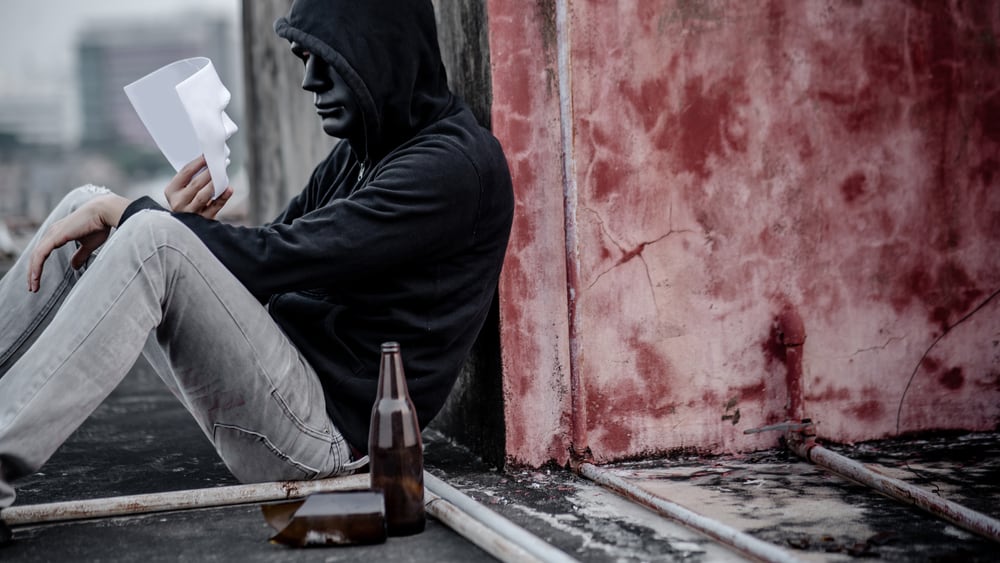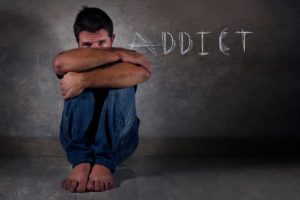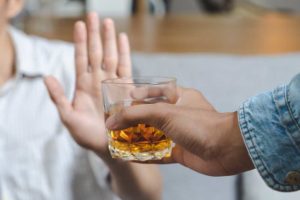When someone has a dual diagnosis, it means they have both substance abuse disorder (SUD) and a co-occurring mental health condition. With a wide range of addictive substances in the world and just as many diagnosable mental illnesses, there are almost countless combinations of potential co-occurring disorders. However, some are more common than others, including bipolar disorder and alcoholism.
Bipolar disorder (also known as manic depression) affects roughly 3% of adults in the United States. Alcoholism (also known as alcohol use disorder or AUD) affects an estimated 18% of people at some point in their lives. Those who abuse alcohol are more likely to suffer from manic depression than the general population, and vice versa. About 45% of people with bipolar disorder also battle alcoholism1.
If you think your family member, child, partner, or close friend might be struggling with co-occurring bipolar disorder and AUD, Northbound Treatment is here to assist with a team of caring and expert professionals at our rehabilitation center. Both conditions are treatable, and with integrated rehab, patients are able to find relief from their suffering. Knowing what to look for can help you approach the issue and guide your loved one to the right dual diagnosis treatment program. The most common bipolar alcoholic traits are outlined below.
Signs Someone Has Bipolar Disorder and Alcoholism
The primary traits of bipolar disorder are episodes of mania (or manic highs) and depression (or depressive lows). These episodes can last for a few days, a few weeks, or sometimes months. Bipolar mood swings are often unpredictable, which can create a lot of anxiety for the person who’s bipolar and the people closest to them. A period of mania or depression can be triggered by substantial life changes, hormonal shifts, grief, stress, medication, drug use, or excessive drinking2.
During an episode of mania, a bipolar person may:
- Appear hyperactive or unusually energetic
- Feel excited, elated, inspired, or euphoric
- Feel exceptionally strong or invincible
- Experience insomnia or difficulty sleeping
- Have racing thoughts or trouble concentrating
- Be unusually chatty or talk excessively
- Become irritable or agitated
- Have lowered inhibitions
- Act impulsively
- Engage in illegal or otherwise risky behaviors
Hyperactivity and impulsiveness during a manic high can lead an individual to behave irresponsibly or partake in dangerous activities. For example, those in a manic episode might drink excessively, go on a spending spree, drive recklessly, engage in unprotected sex, or get into a physical altercation.
During a depressive low, a person with bipolar disorder may:
- Feel hopeless or generally sorrowful
- Seem fatigued or experience a drastic drop in energy
- Sleep more than normal or at odd hours
- Have low self-esteem
- Feel worthless, lonely, or misunderstood
- Become angry or agitated
- Lose interest in things they once enjoyed
- Seem apathetic or unmotivated
- Isolate themselves from family and close friends
- Have difficulty showing up or focusing on school or work
- Stay at home for days or weeks at a time
- Abuse alcohol to numb their distress
- Experience suicidal thoughts
The symptoms of bipolar disorder are immensely difficult to work through alone. Mania and severe depression can also impact those closest to the bipolar individual, causing strain within their family, at work, and in their community.
Someone struggling with alcoholism may:
- Drink to cope with sadness, stress, anxiety, or anger
- Be unwilling to socialize or attend events without alcohol
- Be unable to limit how many drinks they have
- Drink compulsively or excessively
- Pass out or black out frequently from drinking
- Be defensive or make excuses for their drinking habits
- Attempt to hide their drinking habits
- Develop a high alcohol tolerance
- Experience withdrawal symptoms after going a few hours without alcohol
- Crave alcohol at all hours
- Appear physically unhealthy
- Perform poorly at work or school
- Fail to meet various responsibilities
- Engage in dangerous or illegal behaviors
- Withdraw from their loved ones
As you can see, many characteristics of manic depression overlap with alcoholism. The most prominent bipolar alcoholic traits are mood swings, sharp shifts in energy levels, stress, anxiety, and problematic drinking.
Since excessive drinking can trigger mania or depression, the behavior is especially concerning for a person with bipolar disorder. Rapid or drastic mood swings can be challenging to manage as is, let alone with alcoholism. This is why dual diagnosis rehab is vital for individuals with manic depression and AUD.
Bipolar and Alcoholism Effects
The effects of co-occurring bipolar disorder and alcoholism can be very troubling. If left untreated, each condition can be dangerous on its own, but the impacts are often worse when they co-occur1.
Some people are genetically predisposed to bipolar disorder and substance abuse disorder. The brain chemistry among these individuals affects how they process drugs and alcohol, information, and experiences. Battling both alcohol addiction and bipolar disorder can make someone more prone to manic and depressive episodes, violence, and self-harm.
The two disorders can be triggered by high levels of stress or anxiousness, but manic depression and AUD can also trigger anxiety3. Without treatment, this vicious cycle can quickly wreak havoc on all areas of a person’s life. Many experience relationship turmoil, financial struggles, professional obstacles, and issues at home.
Drinking alcohol might provide momentary relief for this continuous anguish, but it can end up exacerbating a person’s troubles. The best course of action is dual diagnosis rehab at an accredited treatment center, like Northbound’s facilities here in Orange County.
Dual Diagnosis Treatment for Bipolar Disorder and AUD
It’s not always clear whether alcohol abuse or mental illness occurred first, especially when a person has been battling both conditions for a long time. In any case, dual diagnosis treatment begins with a comprehensive physical and psychological assessment. A clinical psychologist and addiction specialist will review your health profile and family history, discuss your symptoms, ask about your substance abuse, and conduct a medical exam4. If co-occurring conditions are present, appropriate care will be implemented for both disorders at every stage of recovery.
Integrated dual diagnosis programs help patients manage their substance abuse and mental health simultaneously. They’re able to pinpoint the root causes of their alcoholism, identify triggers, develop healthy coping mechanisms, and learn to live a sober lifestyle. This reduces the chance of relapse, as well as manic and depressive episodes.
Dual diagnosis rehab is a researched-backed approach to treating co-occurring disorders. Through years of experience, the team at Northbound has seen first-hand how the modality can help individuals overcome alcohol abuse and mental illness for the long-term. That’s why we’re proud to offer a fully integrated dual diagnosis program at our Orange County treatment facilities.
Recognizing the complexity of co-occurring alcoholism and bipolar disorder, our dual diagnosis program involves a range of evidence-based therapies and methodologies. Each client works with a dedicated care team to create a personalized and flexible treatment plan. While programs vary, most include one-on-one psychotherapy sessions, cognitive-behavioral therapy, addiction counseling, group sessions, and various experiential therapies.
The Journey to Recovery Starts Today
If someone dear to you is battling co-occurring alcohol use disorder and bipolar disorder, we encourage you to contact us. The addiction specialists at Northbound Treatment can walk you through the best way to approach your loved one and guide them to an appropriate rehab program. Our facilities offer detox, inpatient rehabilitation, outpatient treatment, and aftercare services.
We’re an in-network provider for most major insurance plans throughout the Orange County region, and most policies cover at least a portion of treatment for alcoholism and mental illness. Northbound is committed to providing high-quality, affordable care at all levels, and we offer flexible payment plans for any remaining costs.
Call us today at (855) 858-6803.
For more information about the connection between bipolar and alcohol abuse, what to look out for with bipolar & substance abuse, or for those wondering “Can Drug Abuse Cause Bipolar Disorder?”, be sure to check out our blog.
External sources:
1. https://www.ncbi.nlm.nih.gov/pmc/articles/PMC3730445/
2. https://www.healthline.com/health/rapid-mood-swings
4. https://www.healthline.com/health/bipolar-disorder/bipolar-and-alcohol











